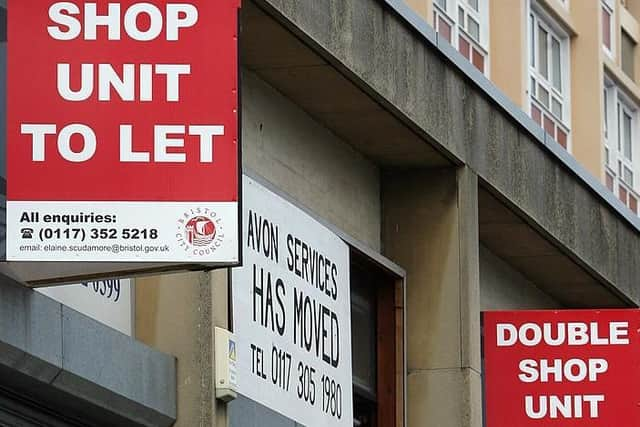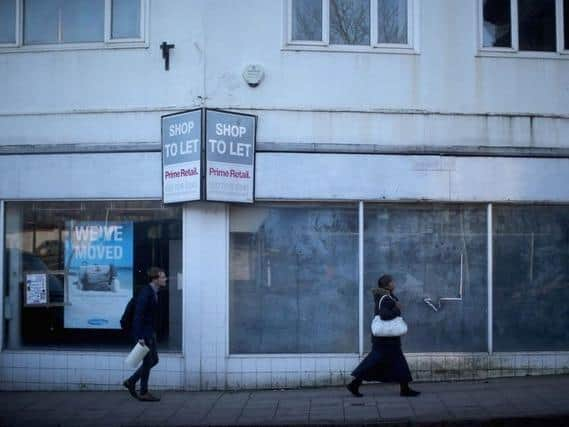Empty businesses and shops will cost Milton Keynes taxpayers £6m this year
and live on Freeview channel 276
Over the past five years, a massive £28m of potential rates income has been lost due to unoccupied shops and premises in MK.
In 2018-19 alone, landlords in Milton Keynes were exempt from paying £6,059,450 of rates under the scheme.
Advertisement
Hide AdAdvertisement
Hide AdLast year, MK Council collected more than £155m in rates for all businesses in the city. The amount paid out in relief amounted to 3.15 per cent of the total rates payable in that area.


Already the forecast for next year shows the council expects to lose another £6.1m due to businesses standing empty, according to new research from the BBC Shared Data Unit.
The owners of unoccupied shops, offices and warehouses do not have to pay business rates for three months.
After this time, full rates should be paid. But some businesses can get extended empty property relief. Industrial premises, for example, are exempt for a further three months and listed buildings are exempt indefinitely.
Advertisement
Hide AdAdvertisement
Hide AdThe aim of the temporary rate relief is to allow for property investment and give landlords time to find a new occupant.


Under current legislation, around half of business rates collected is retained by the local authority and the rest is returned to the government for redistribution.
However, the cost to the taxpayer of empty business units has now risen to more than £1bn a year across England and Wales.
Business rates are a tax on non-domestic properties, like shops, warehouses and pubs. They are based on a property's 'rateable value' which is linked to rental value, and they are separate to corporation tax, which is linked to profits.
Advertisement
Hide AdAdvertisement
Hide AdThe rates are a key pressure on shopping centres and high streets. But while retailers lobby for the burden of business rates to be lightened, councils are becoming increasingly dependent on the income from them as grants from central government are scaled back.
Property tax expert Dr Kevin Muldoon-Smith says business rates were critical to the stability of local authorities going forward.
"We have this perverse situation where local government needs tax to go up and the business community are lobbying very hard for it to go down,” he said.
Dr Muldoon-Smith, together with Professor Paul Greenhalgh from Northumbria University, has provided evidence to a government select committee on business rates.
Advertisement
Hide AdAdvertisement
Hide AdProf Greenhalgh said: “Some vacancy might be due to businesses moving on, not closing down, they might be expanding and climbing the property ladder.
“I think the problem is when the unit continues to be vacant, sometimes for months or even years.
“The more empty property units you have hanging around, that can start blighting an area.”
A HM Treasury spokesperson said: “Empty property relief strikes a balance between incentivising property owners to put vacant properties to use, while not penalising those who lose a tenant at short notice.”
Advertisement
Hide AdAdvertisement
Hide AdHe added: “Whilst the rate of business rates collection varies between individual authorities, the local government finance system has been designed so that business rates income is redistributed across the country according to the needs of local areas.”
Milton Keynes Council leader Pete Marland said: “MK Council and the services we deliver for the local area, increasingly depend on contributions from business rates and this investigation shows just how much councils are missing out on.
“I think the ability to claim rate relief, set by national government, is set with the best of intentions, however it is no longer fit for purpose. We increasingly see property owners leaving a building empty than give a small business a chance, we as taxpayers pay for that and MK Council pays for that. However overall Business Rates are a tax inherited from the medieval world, not fit for the modern business world. It puts the High Street at a disadvantage. The whole system needs looking and reforming.”